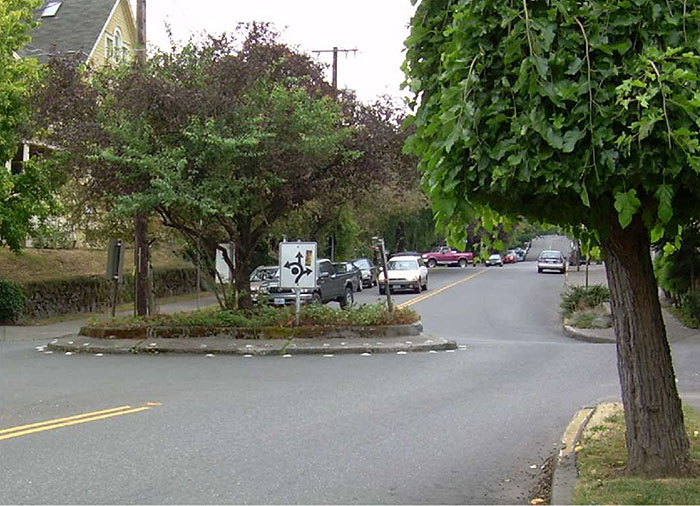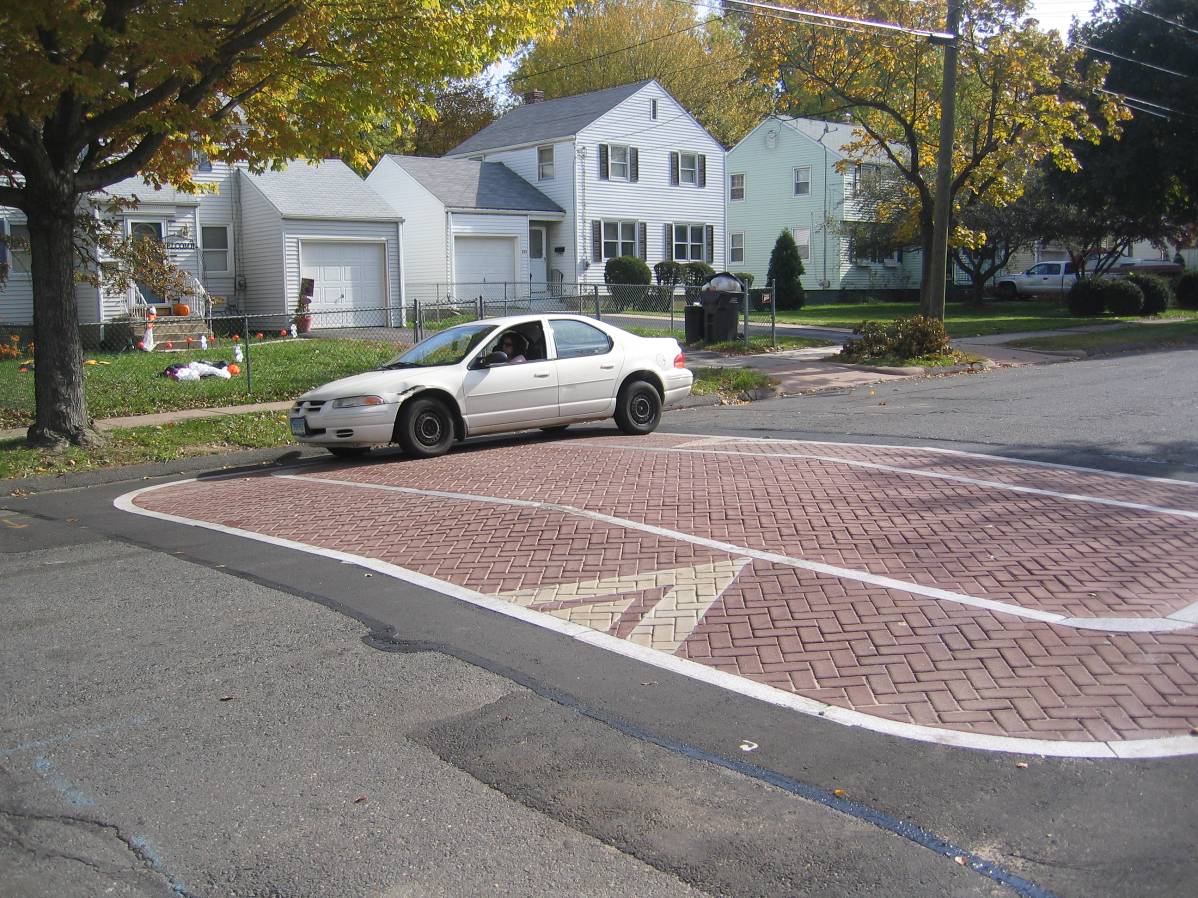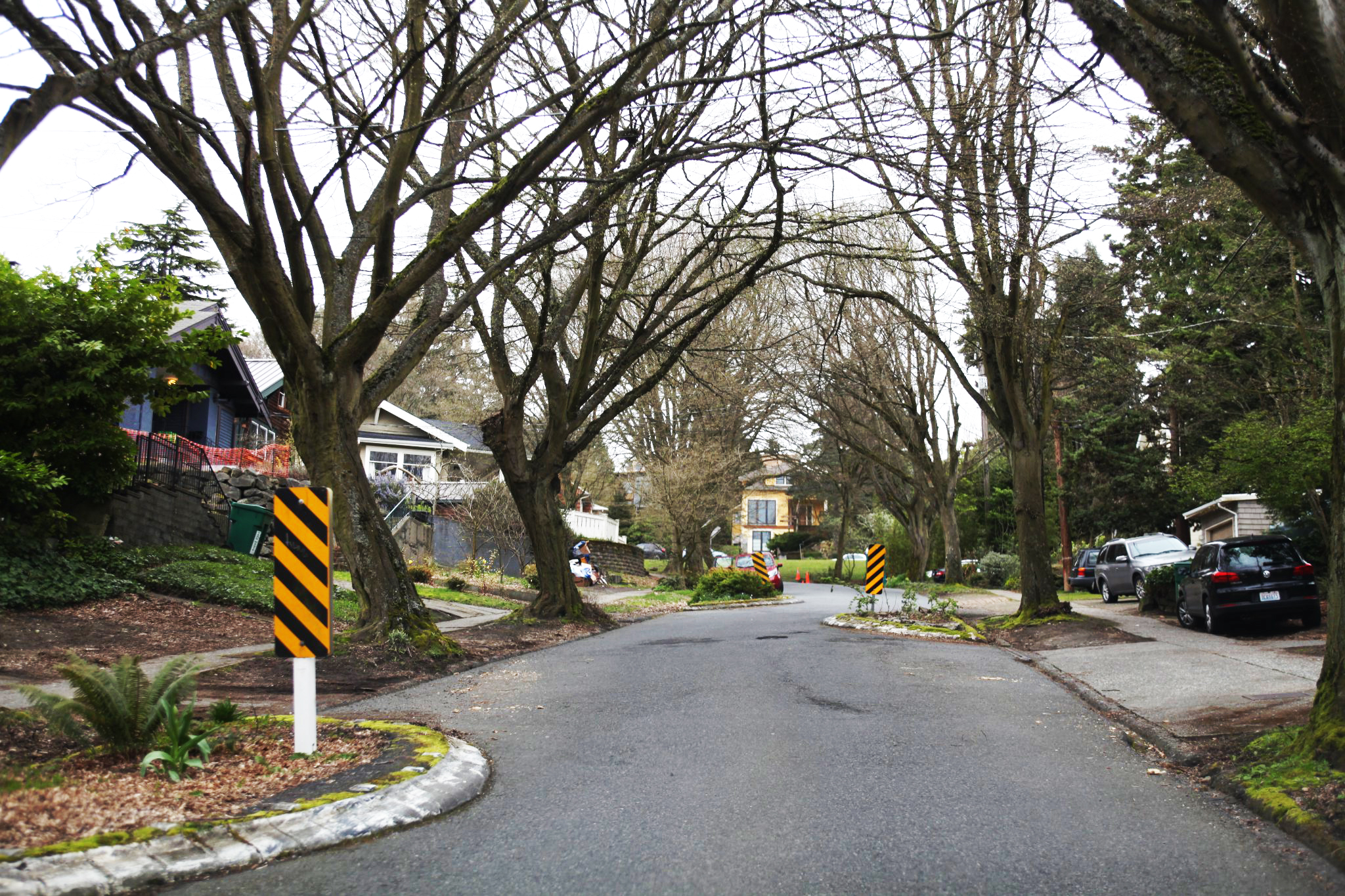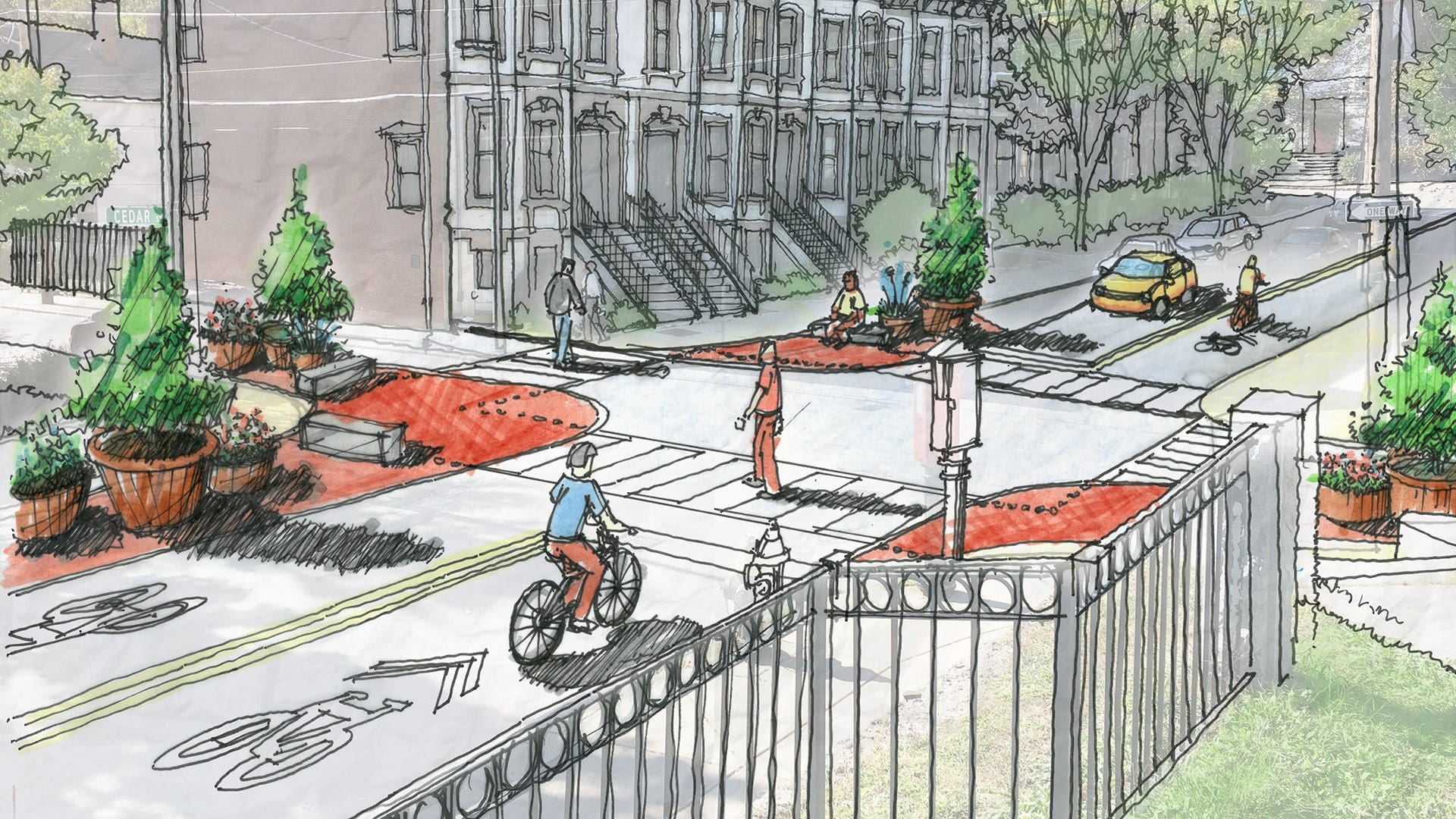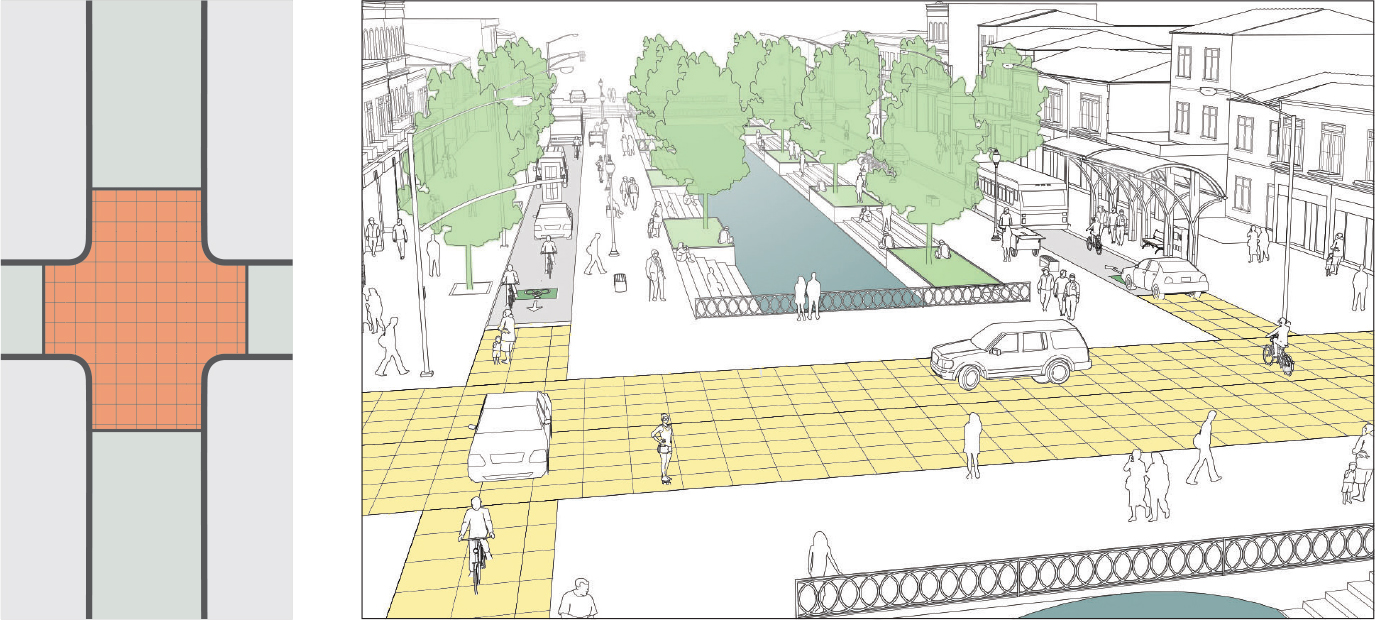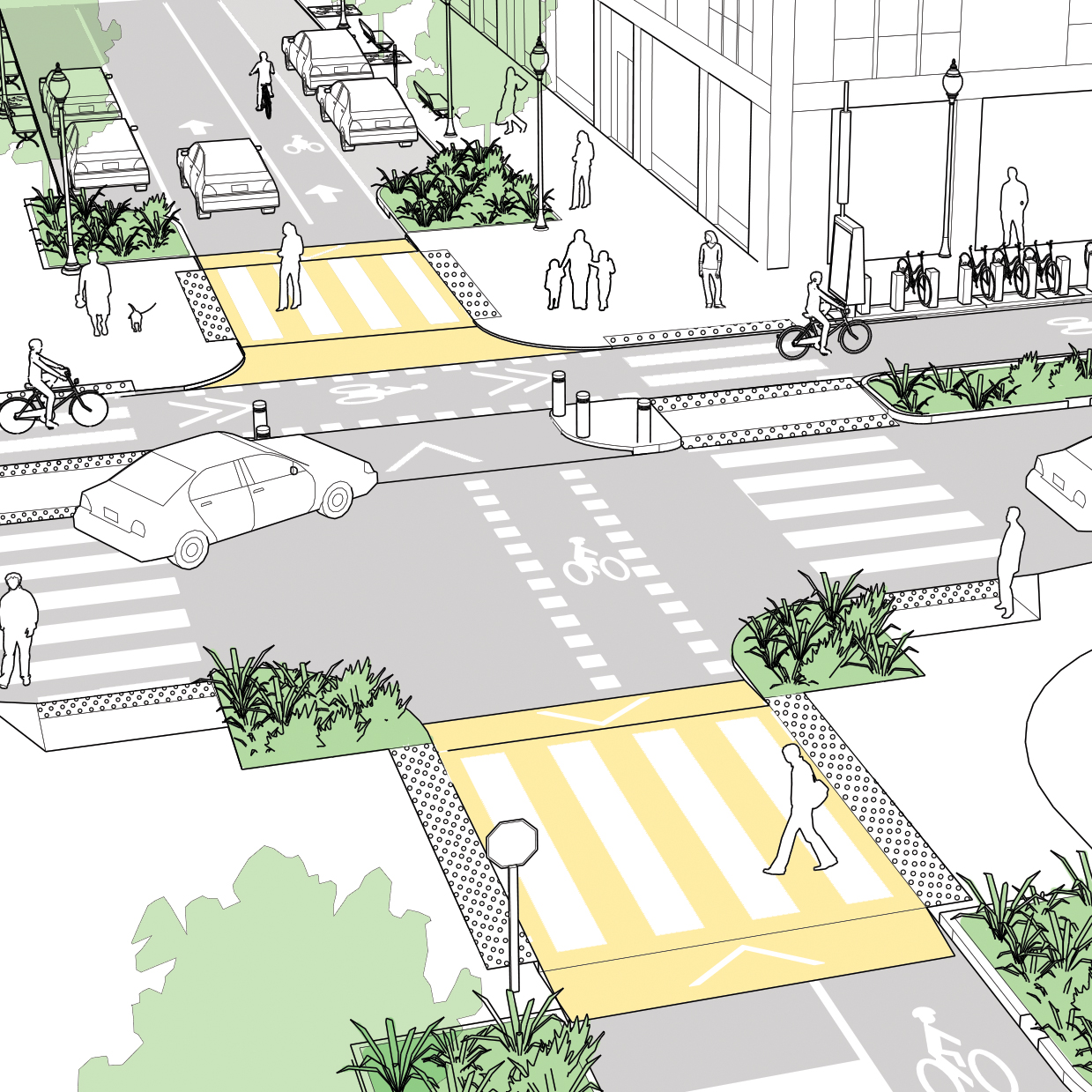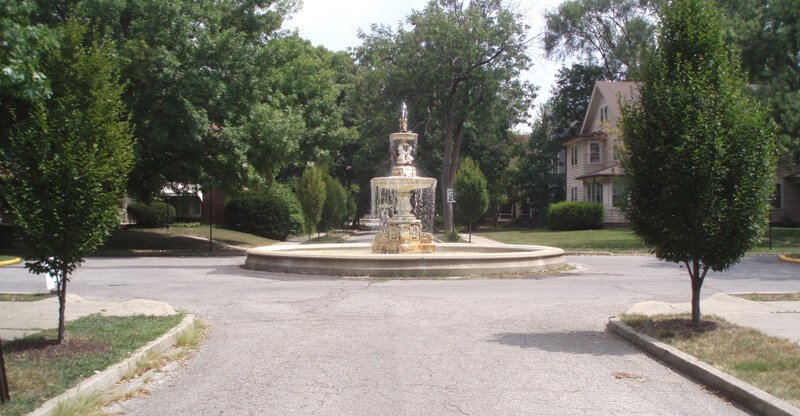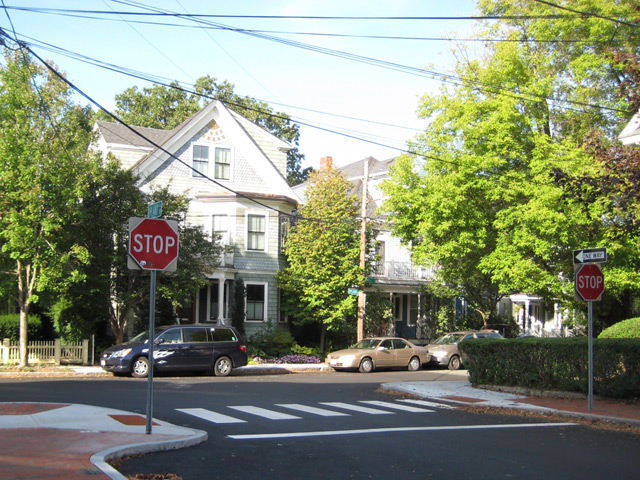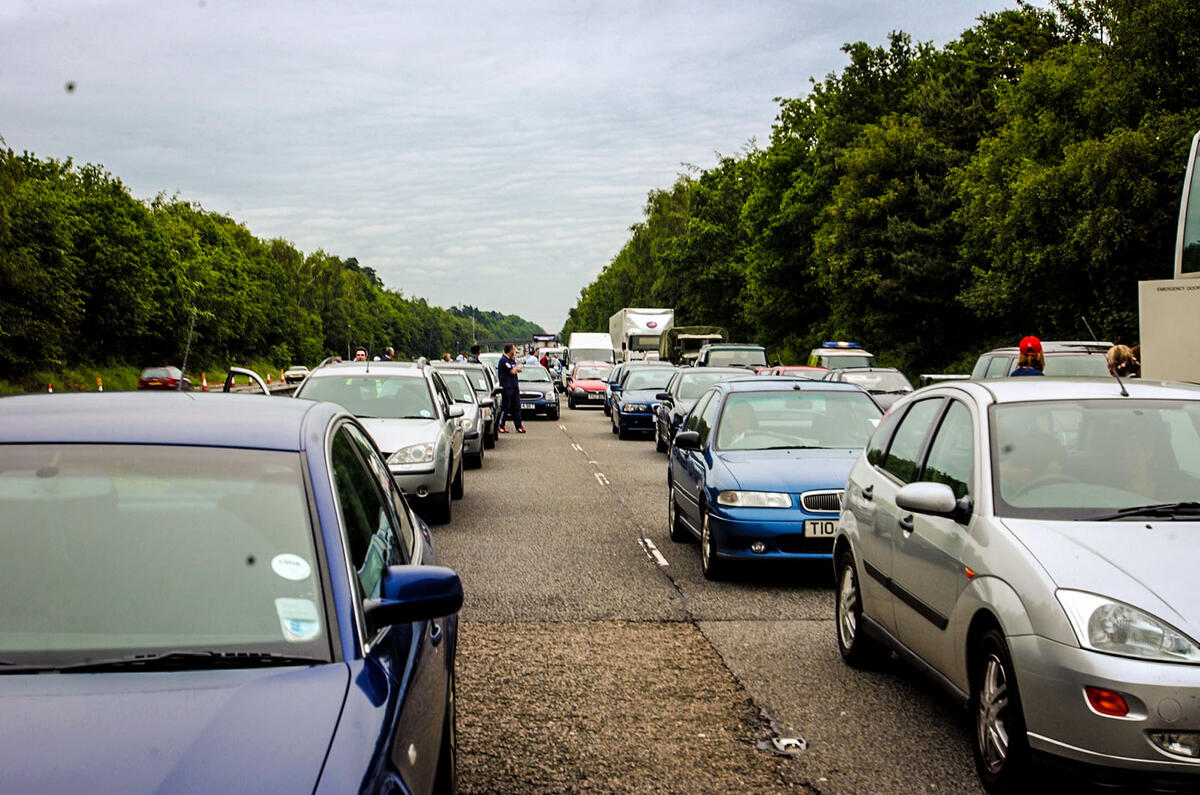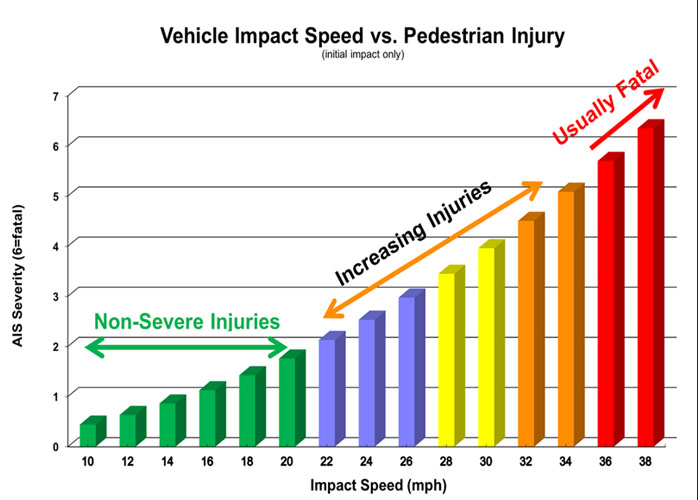Traffic Calming Devices Techniques
Pedestrian crossings and intersections can be painted to highlight crossing areas.
Traffic calming devices techniques. It aims to encourage safer more responsible driving and potentially reduce traffic flow. Evaluation by lcg staff of traffic calming projects along five corridors found a drop of more than 10 in. Iii information about the nature and features of the proposed traffic calming devices such as contained in the guide. Physical obstructions meant to slow down and possibly divert vehicles in residential areas are called traffic calming devices in our industry.
Urban planners and traffic engineers have many strategies for traffic calming including. For example speed humps speed cushions speed tables and radar signs have all been shown to be effective at reducing vehicle speeds but. Traffic calming refers to changes in the road s width elevation and surface in order to slow traffic down or deter it from using that road in order to improve safety for pedestrians and cyclists. Road planners and traffic engineers consider the.
Pavement appearance can be altered through unique treatments that add visual interest such as colored or pattern stamped asphalt concrete or concrete pavers which can be used to make other traffic calming techniques more noticeable to drivers. Proposed traffic calming devices along the street and the affected property boundaries. Before traffic calming measures are installed on state highways a written agreement between the local municipality and penndot s local engineering district must be established to outline funding responsibilities for installation maintenance pavement markings and any other associated traffic control devices such as warning signs. Physical traffic calming devices can help slow down traffic without forcing drivers to an arbitrary complete stop.
Traffic calming measures and techniques. Traffic calming devices implemented under the program include speed humps mini roundabouts and chokers. Traffic calming creates a set of checks and balances that compel those at the wheel to drive slowly and carefully making streets safer for both drivers and pedestrians. Traffic calming techniques are used to provide more balance between motorized and nonmotorized roadway users on local and neighborhood roads.
By mike spack pe ptoe. Procedures are also in place for pursuing privately funded traffic calming measures and removal of traffic calming measures. Many roadways are automobile focused and agencies strive to minimize travel time and delay for motorists while on other roadways agencies may seek to encourage heavy pedestrian volumes. In practice liability is a murky area subject to interpretations that can conflict from one jurisdiction to another.
Traffic calming uses physical design and other measures to improve safety for motorists pedestrians and cyclists it has become a tool to combat speeding and other unsafe behaviours of drivers in the neighbourhoods. There are many ways in which this can be achieved.


